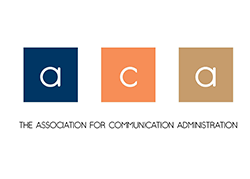Abstract
This article addresses the difference in philosophy and instruction methods in communication graduate programs of the traditional and applied graduate education. Both the traditional and the applied programs are equal in intellectual challenges but with significant differences recognized and accounted for in faculty decision-making associated with course selection, content, and instructional strategy. Graduate programs that contain elements of both models are the more common in our field and face special challenges. In conclusion, administrators must establish and focus upon mutual respect for the commonalities held by the two approaches to graduate education and the support they have for each other, rather than the differences.
Recommended Citation
Powers, W. G., & Love, D. (1999). Traditional and applied graduate education: Special challenges. Journal of the Association for Communication Administration, 28(2), 104–109.


